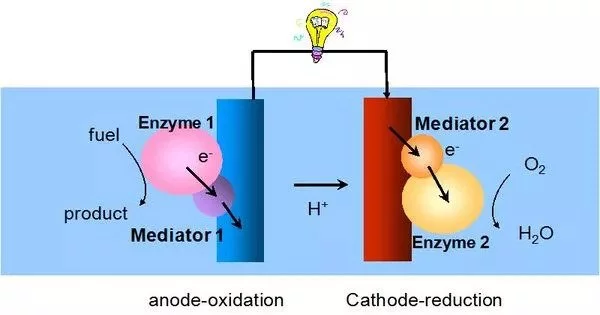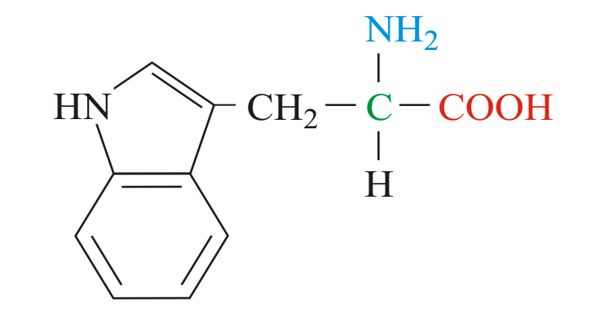An enzymatic biofuel cell is a type of biofuel cell that uses enzymes as catalysts to oxidize the fuel and reduce oxygen to generate electricity. Biofuel cells are a type of fuel cell that uses biological components, such as enzymes or microorganisms, to catalyze the chemical reactions that produce electricity. Enzymatic biofuel cells have several advantages over traditional fuel cells, including their ability to operate at lower temperatures and pressures, their use of renewable, biodegradable fuels, and their potential for miniaturization.
An enzymatic biofuel cell is a type of fuel cell that uses enzymes as a catalyst to oxidize its fuel rather than precious metals. While currently restricted to research facilities, enzymatic biofuel cells are highly prized for the promise they hold in terms of relatively inexpensive components and fuels, as well as a potential power source for bionic implants.
Enzymatic biofuel cells typically consist of two electrodes, an anode and a cathode, separated by an electrolyte. The anode is typically coated with an enzyme that oxidizes the fuel, such as glucose or ethanol, to produce electrons and protons. The electrons are then transported through an external circuit to the cathode, where they combine with oxygen and protons to form water. The reaction at the cathode is typically catalyzed by another enzyme, such as laccase or bilirubin oxidase.
Enzymatic biofuel cells operate on the same general principles as all fuel cells: use a catalyst to separate electrons from a parent molecule and force them to pass through an electrolyte barrier via a wire to generate an electric current. The catalysts used and the fuels accepted distinguish the enzymatic biofuel cell from more traditional fuel cells.
The advantages of enzymatic biofuel cells include their ability to work at low temperatures and their use of renewable resources. They also produce little to no harmful emissions, making them an environmentally friendly alternative to traditional fuel cells.
However, enzymatic biofuel cells also face some challenges, including their relatively low power output and their sensitivity to environmental factors such as pH and temperature. Research is ongoing to address these challenges and to develop more efficient and robust enzymatic biofuel cells for practical applications.
Enzymatic biofuel cells have several potential applications, including powering implantable medical devices, such as pacemakers, and portable electronic devices, such as smartphones and tablets. However, there are still several challenges that need to be overcome before enzymatic biofuel cells can be widely adopted, including improving the efficiency and stability of the enzymes, and increasing the power output of the cells.
















